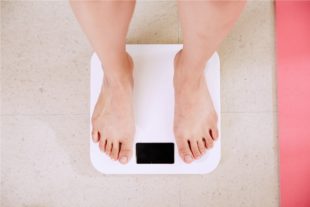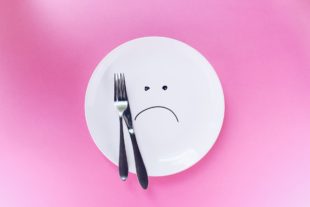Types of Eating Disorders and Treatment Options
Christian Counselor Spokane
 Eating disorders are a very common problem among Americans. At some point in their lives, an estimated 20 million women and 10 million men will have an eating disorder. Eating Disorders do not discriminate. People of all races, ages, and genders can be affected bythis serious issue. While eating disorders can affect people of all ages, it is more common for them to develop during adolescence than at any other life period.
Eating disorders are a very common problem among Americans. At some point in their lives, an estimated 20 million women and 10 million men will have an eating disorder. Eating Disorders do not discriminate. People of all races, ages, and genders can be affected bythis serious issue. While eating disorders can affect people of all ages, it is more common for them to develop during adolescence than at any other life period.
Anorexia and Bulimia are both well-known and common, but there are other types of eating disorders that affect thousands of people. The sooner you receive treatment for an eating disorder, the better chances you have of recovering. Christian counseling can help address the roots of the behaviors to give you hope and freedom.
Types of Eating Disorders
You may have an eating disorder if you have a disruptive or abnormal eating habit. Many people with eating disorders have a distorted body image along with underlying emotional problems. These diseases must be addressed because they can lead to significant health problems or death. These are some common types of eating disorders we will address at length.
- Anorexia Nervosa
- Bulimia Nervosa
- Binge Eating Disorder
- Compulsive Eating Disorder
Though the eating disorder you have may not fit neatly into one of these categories, it’s important that you seek treatment as soon as possible. A caring counselor can help form a diagnosis for you that may save your health or life.
Anorexia Nervosa
Anorexia Nervosa is a disease characterized by a drastic restriction of food intake in proportion to your body weight.
People with this disorder typically have significantly low body weight. They also have an intense fear of gaining weight or getting fat. Their body image is severely distorted. Even if they are severely underweight for their height and build, they may perceive themselves to be overweight.
Those who suffer from Anorexia have persistent actions and behaviors that interfere with gaining weight. For example, they monitor their weight on an obsessive basis. They also practice severe caloric restriction and completely avoid eating certain foods.
 Anorexia sufferers have a focused goal – to be thin. They are typically unwilling to maintain a healthy weight. They are in denial about being dangerously underweight, and their self-esteem is heavily tied to being thin, at least according to their definitions of thinness.
Anorexia sufferers have a focused goal – to be thin. They are typically unwilling to maintain a healthy weight. They are in denial about being dangerously underweight, and their self-esteem is heavily tied to being thin, at least according to their definitions of thinness.
Many people who have Anorexia Nervosa also exhibit obsessive-compulsive symptoms. They may be preoccupied with thoughts about food. Some people with this disorder hoard foods or collect recipes with an obsessed focus. Anorexia sufferers have a compulsive desire for control over their environments, especially around eating. They may struggle to eat in public.
Not all anorexics starve themselves through fasting and dieting. Some binge on foods, then purge it through vomiting, misuse of diuretics or laxatives, or excessive exercise.
Since anorexic habits deprive the body of nutrients, the disorder can be highly damaging. Over time, physical symptoms can include infertility, thinning of bones that leads to osteoporosis, brittle hair and nails, and a layer of fine hair growth all over their bodies.
Left untreated, severe cases of Anorexia can lead to organ failure and death. Anorexia Nervosa has the highest mortality rate of any other mental disorder. Recovery is possible through the right treatment programs.
Bulimia Nervosa
If you have Bulimia Nervosa, you may eat huge amounts of food in a short period of time. You may not feel in control of your food intake during binge episodes, and not stop until you are uncomfortably full. Binges typically involve food that the person would normally avoid eating.
Those with Bulimia also engage in recurrent and destructive behaviors to avoid gaining weight. These behaviors may include self-induced vomiting, misusing laxatives, fasting, diuretics, and/or excessive exercise. To be diagnosed with Bulimia, you must have a cycle of binges and compensatory behaviors that occurs at least once per week for three months.
Bulimia victims have a severely disordered body image and intense fear of gaining weight. It often develops during adolescence. Though Anorexia and Bulimia have similarities, those with Bulimia typically maintain normal body weight.
Since bulimics often use self-induced vomiting, there are several side effects of frequent vomiting. These include a sore or inflamed throat, acid reflux, gastronomical irritation, salivary gland swelling, hormonal problems, severe dehydration, and significant tooth decay. Some bulimics suffer from an imbalance of electrolytes, which can cause heart attacks or strokes in severe cases. However, hope is within reach when you enter Bulimia recovery.
Binge Eating Disorder
 Binge Eating Disorder, also known as overeating disorder, is one of the most common eating disorders in the United States. Those who suffer from this disorder normally eat significant food amounts in brief periods. They often feel out of control as to how much they eat during binges.
Binge Eating Disorder, also known as overeating disorder, is one of the most common eating disorders in the United States. Those who suffer from this disorder normally eat significant food amounts in brief periods. They often feel out of control as to how much they eat during binges.
As with Anorexia and Bulimia, this disorder typically develops during adolescence in most individuals. However, unlike anorexics or bulimics, people with Binge Eating Disorder do not drastically restrict calories, nor do they use compensatory behaviors to purge after their binges.
If you have Binge Eating Disorder, you may eat large amounts of food in a relatively short time period, even if you aren’t hungry. You may do this in secret and eat until you feel painfully full. After these binge episodes, you may feel guilty, ashamed or disgusted with yourself when you think about the binges.
Many people with this disorder are overweight or even obese. Having an overly high body weight can lead to many complications, including joint pain, shortness of breath, Type 2 diabetes, metabolic syndrome, heart attacks, and stroke.
Compulsive Eating Disorder Compulsive Eating Disorder is an umbrella term for many different types of eating disorders, such as the following:
- Emotional eating
- Stress eating
- Night eating
- Eating on impulse
- Eating out of the garbage
- Hiding food
There are many reasons why these behaviors occur, but the common thread is a lack of control during the episode. To be diagnosed with a Compulsive Eating Disorder, someone must have an episode that occurs at least once per week for a minimum of three months. Many people with these disorders eat rapidly and until they are uncomfortably full. They often eat alone due to shame and guilt.
Some people with Compulsive Eating Disorders have other emotional issues, such as anxiety, depression, or post-traumatic stress disorder. The compulsive eating episodes can serve as a coping mechanism for these related problems. Others may practice these behaviors due to boredom or mindless habit. A qualified counselor can help you understand the reasons behind your compulsive eating habits.
It’s important to seek treatment for compulsive eating habits because they can lead to various health concerns. Even if you are at a normal weight, you may be doing harm to your body with compulsive behaviors. Compulsive eating recovery is possible with the help of a skilled counselor.
Treatment Options
 There are various types of treatments for eating disorders, depending on the severity of the disease. Many patients will benefit from talk therapy. At Spokane Christian Counseling, we will start there to form a diagnosis, then recommend specific treatment based on the type of eating disorder from which you suffer.
There are various types of treatments for eating disorders, depending on the severity of the disease. Many patients will benefit from talk therapy. At Spokane Christian Counseling, we will start there to form a diagnosis, then recommend specific treatment based on the type of eating disorder from which you suffer.
Anorexia Treatment
We will focus first on weight restoration to help you recover. We often counsel other family members at the same time to get everyone on board with the healing process. Often, family involvement and support in treatment leads to a more effective recovery. We will help you stop the cycle of compensatory behavior and establish healthy, normal eating habits.
Bulimia Treatment
Cognitive therapy can be effective for those suffering from Bulimia. We will help you see your body in a new way and help you deal with your triggers. As you learn to control your emotions, you will gain control over your behaviors.
Binge Eating Treatment
We will help you develop skills to change the negative eating behaviors. Through therapy, you will learn to regulate your emotions and tolerate stress. We will also help you become more mindful while eating.
Compulsive Eating Treatment
With Compulsive Eating Treatment, we often use acceptance and commitment therapy. We will help you change your actions by connecting you to your core values. We can help you develop better habits when triggered by the stresses that lead to compulsive eating. You will feel better over time as you learn to engage with life in an authentic way.
Almost all eating disorders stem from broken interpersonal relationships. The caring counselors at Spokane Christian Counseling can help you identify the stressors in your relationships that are linked to the eating disorder. Once the underlying issues are addressed, recovery is possible. Contact us today to schedule an initial consultation. We will discuss the treatment options that are best for your situation.
Photos:
“Weigh-In”, Courtesy of I Yunmai, Unsplash.com, CC0 License “Frowning Plate”, Courtesy of Thought Catalog, Unsplash.com, CC0 License; “Breakfast”, Courtesy of Brooke Lark, Unsplash.com, CC0 License; “Water Lily”, Courtesy of Gautam Krishnan, Unsplash.com, CC0 License





